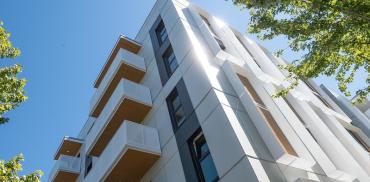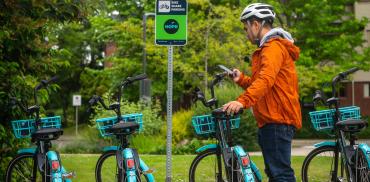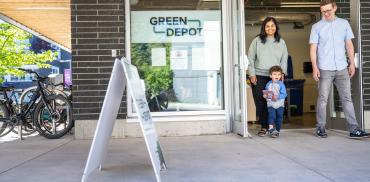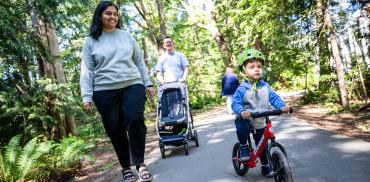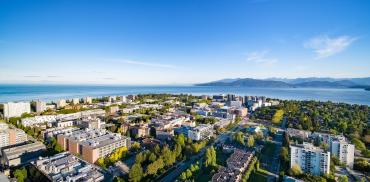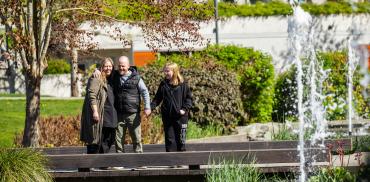The Neighbourhood Climate Action Plan (NCAP) sets a pathway to a net-zero and climate resilient community for the residential neighbourhoods on the University of British Columbia’s Vancouver campus.
Learn more about GHG emission sources and projections and climate projections for UBC’s neighbourhoods.
NCAP addresses this goal through climate action in six scope areas, shaped by five guiding principles. To learn more about each of the six scope areas, click on the boxes below.
